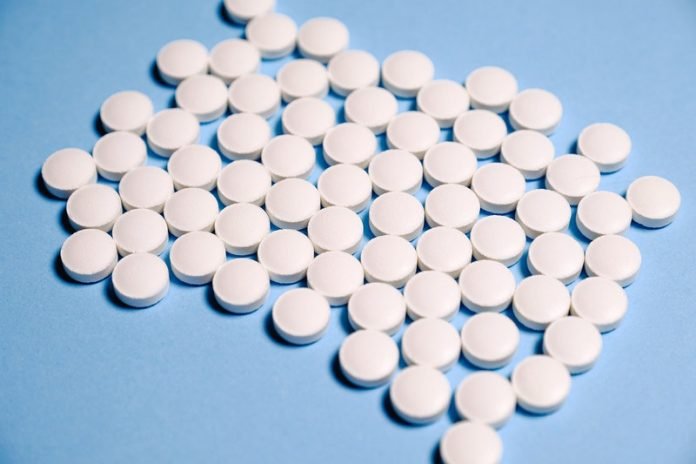
A new study from Imperial College London found antiplatelet drugs such as aspirin have little effect on the need for life support in COVID-19, but they may improve survival in the following months.
The study is published in The Journal of the American Medical Association and was conducted by Dr. Charlotte Bradbury et al.
People who become seriously ill with COVID-19 are at risk of developing blood clots that can block their blood vessels and lead to potentially fatal organ damage.
Researchers want to know if this process could be prevented by treating patients with blood-thinning antiplatelet drugs.
In the study, the team tested 1,557 patients critically ill with COVID-19 in 105 hospitals in Canada, France, Germany, India, Italy, Nepal, Netherlands and the UK during 2020 and 2021.
Some were given aspirin, some were given another type of antiplatelet drug called clopidogrel and some were not given any antiplatelet drug.
The main focus of the study was to see how these drugs affected the length of time that patients needed organ support, such as breathing support, in the intensive care unit.
Researchers found that these short-term outcomes were similar whether the patient was treated with an antiplatelet drug or not.
The team continued to follow each patients’ progress for 90 days and they found that those who were treated with antiplatelet drugs were more likely to survive over this longer time (a 70.5% chance of survival compared to 67.3% in patients not treated with an antiplatelet drug).
The team says it is interesting that these antiplatelet drugs seem to improve survival but do not affect the duration of organ support. It may be that antiplatelet drugs are helpful for some patients but not all.
For example, it looks likely that patients who were already on high doses of blood thinners such as heparin didn’t benefit from antiplatelet drugs whereas those on lower doses did.
The researchers plan to continue studying these two drugs in critically ill patients, focusing on longer-term survival and aiming to find out more about which patients are most likely to benefit.
Another study has found that Aspirin, common anti-inflammatory drugs may prevent COVID-19 deaths, which is relevant to the current study.
In a recent study from the University of Alberta and published in Emergent Materials, researchers found common anti-inflammatory medications such as aspirin can help treat the most harmful outcomes of COVID-19.
Most people infected with SARS-CoV-2 recover without serious symptoms.
However, some patients develop inflammation in the lungs, causing coughing and shortness of breath, and a few develop hyper inflammation that can lead to organ failure and death.
COVID-19 can interfere with their natural immune response, causing their bodies to produce more inflammatory molecules than anti-inflammatory molecules.
In that study, the team aimed to prevent the molecules that promote inflammation or increase the molecules that have an anti-inflammatory effect.
Rather than developing new compounds to treat COVID-19, which can be very costly, they repurposed existing drugs and use them to reduce or prevent the inflammation that is the cause of mortality.
The team warned in a previous paper that anti-inflammatory medicines are not recommended early in the course of a COVID-19 infection because they can interfere with the body’s ability to fight the virus, but they might be useful later if hyper inflammation takes over.
They pointed out that these drugs may have fewer side effects than other front-runner COVID-19 treatments such as remdesivir and dexamethasone.
Along with aspirin, the study lists five other drugs that might be repurposed: the cholesterol drug fenofibrate, the antifungal fluconazole, an antibacterial agent called isoniazid, the nutritional supplement resveratrol and 2-methoxyestradiol, an experimental drug that has been used to treat breast cancer, ovarian cancer and rheumatoid arthritis.
The researchers recommend that clinical trials be carried out to assess the impact of these drugs on COVID-19 inflammatory disease.
They would also like to see trials to deliver the drugs using nanoparticles that can be targeted within a patient’s body.
If you care about COVID, please read studies about old drug that can save your life from COVID-19, and findings of some diabetes and high blood pressure can increase brain damage in COVID-19.
For more information about COVID, please see recent studies about drug that can offer much-needed COVID-19 protection, and results showing scientists find new antibody treatment for COVID-19.
Copyright © 2022 Knowridge Science Report. All rights reserved.



